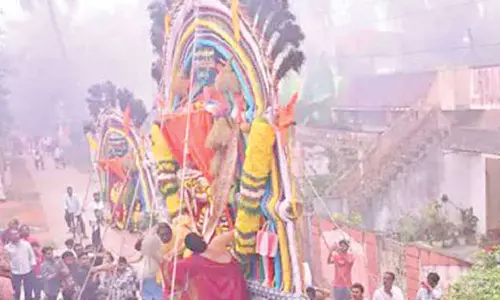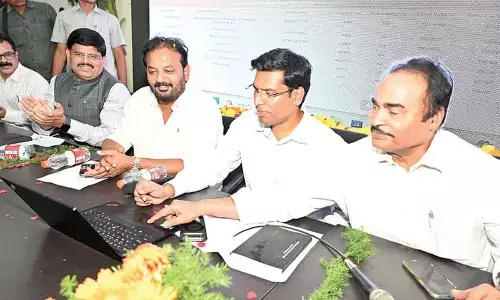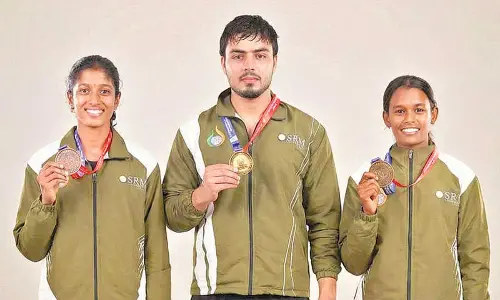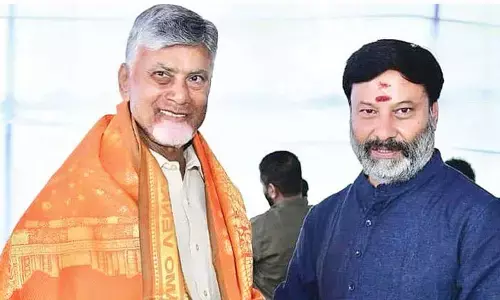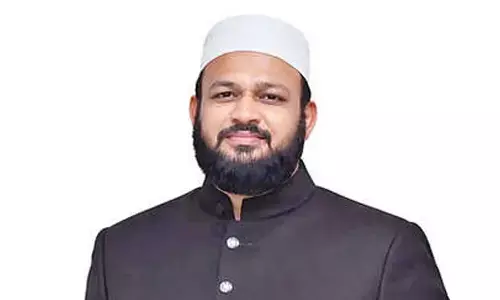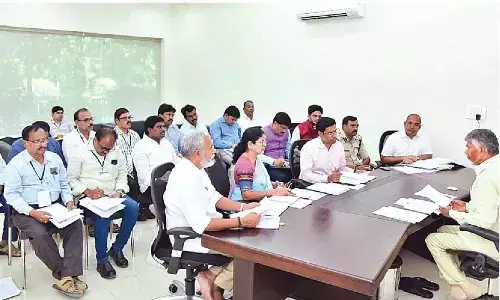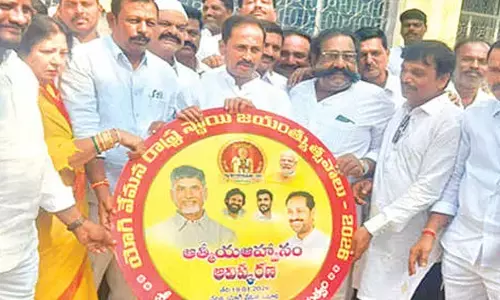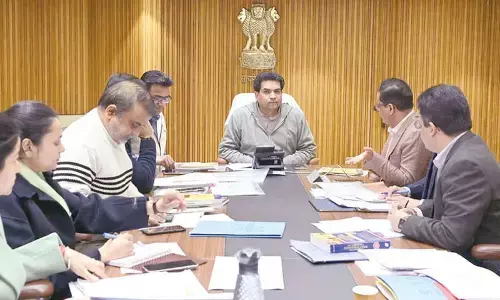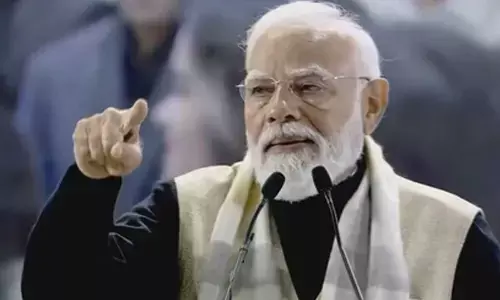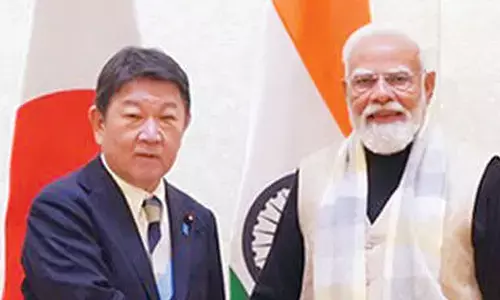Phew, the caste conundrum!
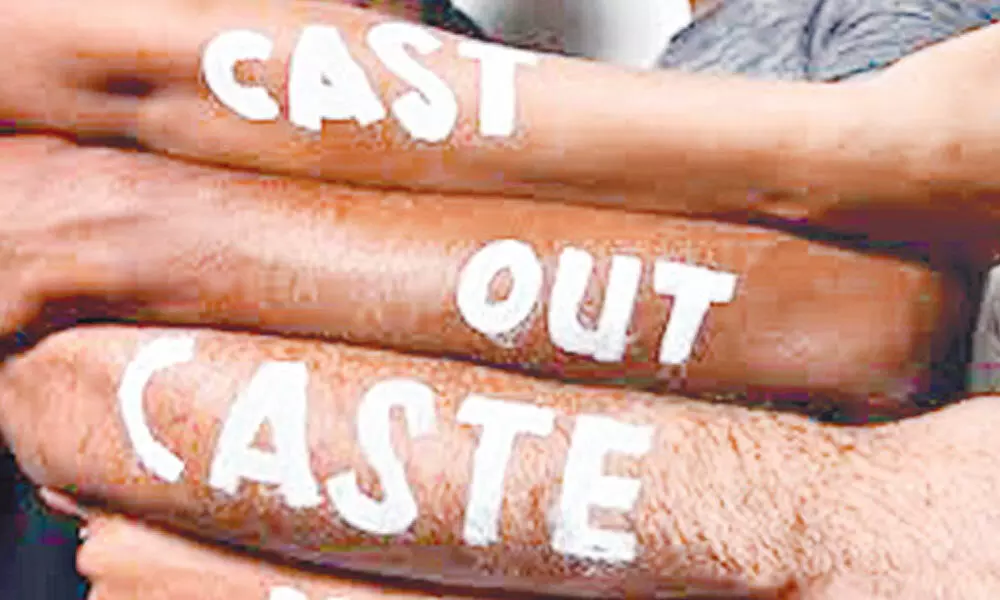
Phew, the caste conundrum!
It was a pleasant surprise for my beloved journalism professor, a scholar in every sense of the word a couple of months back, as she received the list of the 10 new Vice-Chancellors appointed by the Telangana government, albeit after an inordinate delay
It was a pleasant surprise for my beloved journalism professor, a scholar in every sense of the word a couple of months back, as she received the list of the 10 new Vice-Chancellors appointed by the Telangana government, albeit after an inordinate delay. Even before the news could sink in, she was flabbergasted to see that every appointee's name was followed by a mention of the individual's caste in brackets.
All medias—print, electronic, online and social –unhesitatingly mentioned about the caste of the new VCs in an attempt to highlight the government's astuteness in maintaining 'social equilibrium.' While two VCs are BCs, and an equal number are from Reddy community, there are one each from SC (Mala), ST, Brahmin, Vysya, Velama and Sindhi communities they mentioned.
Should all Osmania University's faculty members, students and staff belonging to BC category celebrate the appointment of the VC of their community? Similarly, should all non-Brahmins working in Dr BR Ambedkar Open University be dismayed that their VC is from a different caste? Caste polarisation begets groupism only to further vitiate the already rancid atmosphere on university campuses as well as workplaces.
Is it absolutely necessary to indicate the caste of an official, a people's representative, or that of a candidate in the electoral fray? Is it wise to link every action or decision to caste? Does it indicate progression or regression? are the moot points.
A new Pew Research Center report (Titled: Religion in India: Tolerance and Segregation) on the religious and cultural attitudes of Indians, based on a face-to-face survey of 29,999 Indian adults conducted between late 2019 and early 2020, throws light on the religious and caste feelings prevalent in our society. The first-of-its-kind survey, conducted by local interviewers in 17 languages covering nearly all States and Union Territories, was published on June 29 amid the Covid-19 crisis.
Though the 42nd amendment to the Constitution appended 'secular' in the country's description in the Preamble way back in 1976, the Pew Center survey categorically shows the importance the society attaches to religion. A good outcome is that Indians value religious tolerance, though they also live religiously segregated lives. In contrast to a key element of the fundamental duties of the citizens ('To promote harmony and the spirit of brotherhood amongst all Indians transcending religious, linguistic and regional or sectional diversities') added to the Constitution through the same amendment, Indian caste system is here to stay.
The survey revealed that "regardless of whether they are Hindu, Muslim, Christian, Sikh, Buddhist or Jain, Indians invariably get identified with their caste." A majority of Dalits in the Northeast and South say that they have been subjected to discrimination in the last 12 months because of their caste. This needs to be pondered about as this barbaric social victimisation has been reported by 38 percent of Dalits in the Northeast and 30 percent in the South. In North and Central India, it is 22 percent and 13 percent respectively.
An astounding 70 percent of respondents disclosed that most of their close friends share a common caste. When a group of friends flock together solely based on the caste equation and the caste is the only binding factor for a section of people, societal unity is at stake. The Pew survey examined various dimensions of caste under the title, 'Attitudes about Castes in India.'
By the way, do we really need a mega survey to understand the role of caste in our lives? Isn't it all-pervading? In fact, it runs in the veins of a vast majority. Like it or not, our folks are habituated to view everything from the caste prism. It is proved beyond doubt that people don't waste time in approaching search engines to find out the caste of an award winner (case in point, Olympic Silver medallist PV Sindhu) or a new celebrity (Say, Jaatiratnaalu-fame Naveen Polishetty).
Caste equation is a key criterion for political parties to field candidates in elections, freebies are doled out on the basis of caste, and caste-based hostels and function halls are easily identifiable landmarks in any Indian city and town. Many outlawed practices like untouchability and discrimination based on caste are very much in vogue in our villages.
More than any institute, politics should take the blame for institutionalising caste. If it is a TDP government, you find Kamma leaders getting a lion's share in key positions. A big slice of the cake goes to Reddys in the YSRCP or Congress rule. Kapu community pinned a lot of hopes on actor-politician Chiranjeevi and now they see a messiah in Pawan Kalyan. The TRS government is accused of according priority to Velamas while the BJP is considered as pro-upper caste, especially Brahmin-dominated, outfit. Having grown up with an overriding influence of socialism and communism, I am aghast at the caste politics that prevails within the two top Communist parties. There was a talk about the caste war among Maoists too.
This 'mera apna' syndrome that tortures real talent to death is wreaking havoc in every sector. A dominant caste had held sway over Bollywood till recently but inter-caste marriages within the fraternity has apparently brought down the talk of caste conundrum in the industry. The caste-centric honour killings rock our society with a spine-chilling regularity. The advanced technology-propelled social media platforms and personal messaging Apps are unfortunately used left, right and centre to propagate caste ideologies.
Some real-time instances forced me to believe that there are two more powerful tools than caste: sycophancy and money. Massaging ego, boot-licking in a crude sense, is the key to win the heart of a leader or boss. If you are filthy rich, a red carpet is readily laid for you.
The 3,000-year-old caste system can't be weeded out overnight. The social hierarchy passed down through generations is deep-rooted. The latest survey also indicates that achieving a caste-less society is impossible. As long as our political class is ruled by short-sighted and selfish crooks, our lives revolve around caste unwittingly.
They make every effort to stoke caste fire, covertly or overtly, and keep caste issues alive for their political and individual benefit. Making it all the more reason for us to find a civilised way to live with the ground realities. The educated citizens with democratic and secular spirit should shoulder the responsibility to find an amicable solution to this nagging issue.
First of all, a concerted collective effort is needed to remove the feeling of supremacy, the deadly trait that led Hitler to holocaust. The superiority complex led to gruesome mass murders across India and the holier-than-thou attitude of some casteist forces is still causing trauma in a large portion of our society. People from the so-called upper castes are discontinuing the tradition of proclaiming caste names by way of suffixes even as some castes are deliberately indicating their caste as part of Dalit assertion.
It is indeed a personal choice. Suppressed castes have every right to demand fair deal to make up for the exploitation. The upliftment of the marginalised sections is the national duty of every citizen to undo the yesteryear's stupidities.
A modern medicine is the need of the hour for the age-old ailment. For the sake of a harmonious society and peaceful human relations, we all need to take simple steps, which I call a six-point formula.
♦ Realise the fact that every person has the right to life (Article 21) and every citizen is a useful human resource in this wonderful world. Make it a habit to imbibe and practice the essence of universal brotherhood. Liberty, equality and fraternity should be our guiding forces.
♦ Eschew religious bias and caste prejudices and avoid preconceived notions while dealing with fellow-human beings.
♦ Resist discussions at home and workplaces that revolve around one's religion and caste and their supremacy.
♦ Leave all caste-based social media platforms and personal messaging Apps to send a strong signal to your brethren that you are a world citizen.
♦ Discourage your family, especially the next generation, and friends from laying emphasis on religion and caste in their conversations.
♦ Don't be a supine spectator on the issues of caste subjugation. We need to act now for an equitable, happy society.
(The author, a PhD in Communication and Journalism, is a senior journalist, journalism educator and communication consultant)








